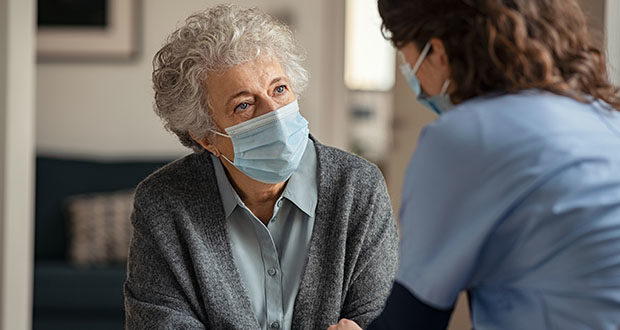While we’re not completely out of the woods yet, we can finally start to see a glimpse of the light at the end of the tunnel with the COVID vaccination rollout now underway across the country.
The aged care sector has been hit particularly hard by the pandemic with numerous coronavirus outbreaks in many residential aged care facilities and 685 residents dying from the virus. As older people are more vulnerable to COVID-19 and aged care residents live in close confines, it was bound to be a recipe for tragedy.
In March 2020, WHO declared COVID-19 a global pandemic, Australia recorded its first COVID-related death and reached its first peak with 297 new cases. Twelve months later, now that the situation is no longer as dire, it is an opportune time to pause and reflect on the lessons learned by the aged care sector.
1. Older Australians still living at home deserve more
The aged care system has a strong focus on supporting older Australians to live independently, at home, for as long as possible. What we have all realised throughout the pandemic, with the periods of lockdown, is that being able to be at home is only one part of the equation for living rich and fulfilling lives. Meaningful connections and a sense of purpose are essential to thriving.
ACNA conducted an omnibus survey of 1,060 people over the March-May 2020 timeframe, which revealed that 50 per cent of respondents over 60 years of age reported that the lockdown restrictions did not affect them because their lives prior to lockdown were very much the same. This means that many older Australians living at home live a COVID-style lockdown life.
The aged care system must go beyond just a person’s physical abilities and needs and aim to support emotional, mental and psychological needs as well. Research has linked social isolation and loneliness in older people to higher risks for a variety of physical and mental conditions: high blood pressure, heart disease, obesity, a weakened immune system, anxiety, depression, cognitive decline and even death.
2. In-person conversations are more beneficial to older people
The threat of coronavirus combined with self-isolation restrictions has resulted in a significant increase in the use of video calls.
Despite its usefulness in keeping us connected with our loved ones or colleagues, video conferencing can represent a barrier to people interacting, sharing their struggles, and simply opening up.
We found that most seniors are a lot more comfortable and engaged during in-person interactions and there is a level of trust that is harder to attain during video calls. During the peak of the pandemic many aged care providers reached out to our elders offering telephone and video calls to regularly check in on them – and that was terrific. But despite it being more cost effective and allowing aged care providers to connect with more people, it should not become the primary method of connecting with seniors.
3. Ageist language affects the health of our seniors
Well-known anti-ageism advocate Ashton Applewhite believes ageism is the “last socially sanctioned prejudice”. Racist and sexist comments or behaviours no longer get a pass, but it is somewhat normalised to describe older people as worthless, incompetent, or ‘out of it’.
The negative stereotypes associated with ageism represent a barrier to staying optimistic and worst, it is detrimental to older people’s health and longevity. People with negative attitudes about aging lived 7.5 years less than those with positive attitudes according to researcher Becca Levy.
It was wonderful to see the groundswell of support for our seniors during the pandemic with stores opening earlier specifically for older people, neighbours dropping off toilet paper and other essentials, pharmacists delivering medication, etc. Australia really came together as a community. But with that support came ageist language, be it in politics, in the media and in other institutions.
As the aged care sector, we have to make it our responsibility to not only educate ourselves about the impact of ageist language on older people’s health, but we also need to commit to identifying, critiquing and challenging ill-informed and oppressive language, labels and discourses used to describe older people.
Most older Australians have raised families, bought and sold houses, worked or managed a business and yet, when they reach a certain age, we believe they can no longer manage or make decisions about their health and wellbeing.
While some older adults do require assistance, using language that assumes most are not able to make decisions on their own is inconsistent with the evidence and reinforces ageing stereotypes.
Ricki Smith is CEO of Access Care Network Australia
Do you have an idea for a story?Email [email protected]
 Aged Care Insite Australia's number one aged care news source
Aged Care Insite Australia's number one aged care news source


